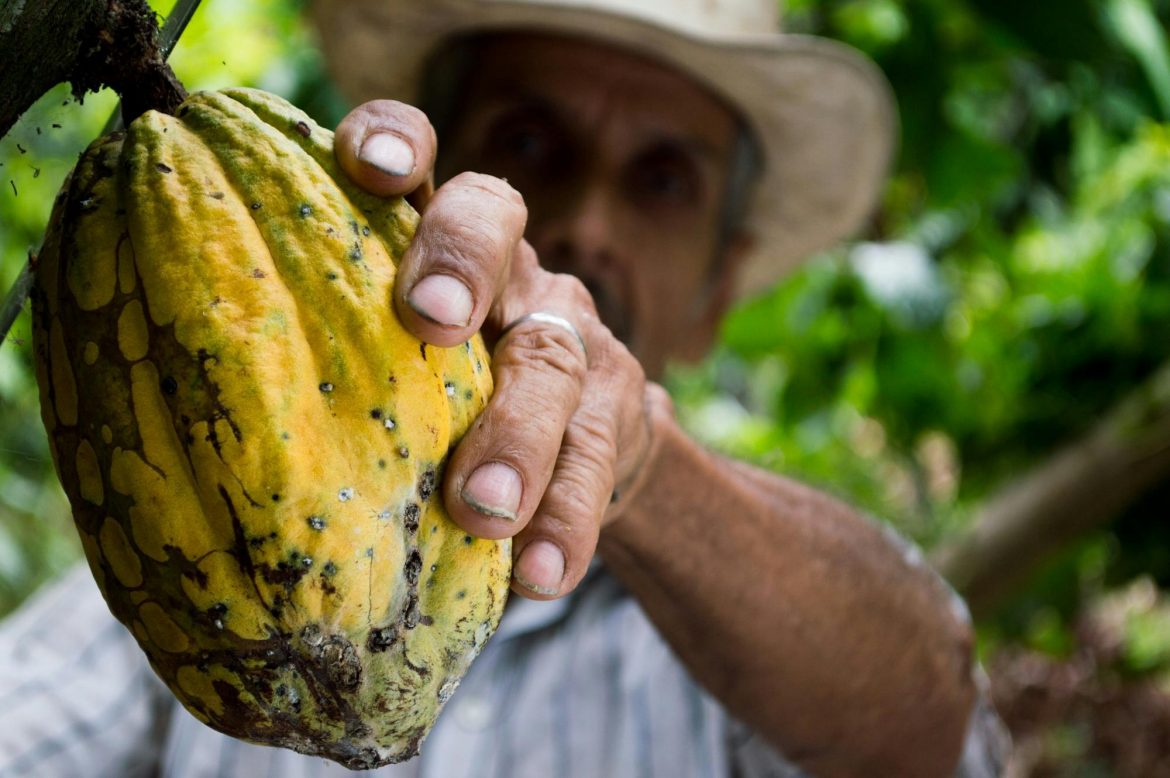Barry Callebaut, a Swiss chocolate maker, lowered its annual sales volume forecast on Thursday due to “unprecedented volatility” in cocoa bean prices.
This development led to a significant drop in the company’s shares, which were down almost 20%, on track for their largest-ever one-day decline, Reuters reported on Thursday.
The world’s largest chocolatier, a major supplier to key food producers such as Nestle, the maker of KitKat, has released a forecast predicting a decline in its cocoa sales volume.
Volumes to fall
The company anticipates that the volume of cocoa sales for the financial year ending on August 31 will decrease by a percentage in the mid-single digits.
This projection highlighted a potential shift in the cocoa market and could have implications for both the chocolatier and the broader food industry.
The company had initially forecast a minor decrease in sales volume, predicted to be in the low single-digit percentage range.
This projection was influenced by the prevailing market conditions, particularly the exceptionally high costs of raw materials.
The high prices were expected to impact consumer purchasing power and, consequently, the overall sales figures.
“The short term pain from the unprecedented cocoa price spike and volatility is worse than we anticipated for the company,” Kepler Cheuvreux’s analyst Jon Cox was quoted in the Reuters report.
Cox added that the decline in cocoa prices should improve chocolate demand and ease the pressure on Barry Callebaut’s balance sheet and financials.
Cocoa prices
Cocoa futures, traded in London, are currently priced at approximately 6,096 pounds ($7,839.5) per metric ton.
This represents a significant decrease from the yearly high of 9,290 pounds reached in January.
This price drop can be attributed to a “perfect storm” of factors impacting cocoa farmers in Western Africa, a region responsible for approximately 70% of the global cocoa supply.
These factors primarily stem from climate change and long-standing issues with insufficient planning and resource allocation within the cocoa industry.
Climate change has had a profound impact on cocoa production in Western Africa. Changes in temperature and precipitation patterns have led to decreased yields, increased pest and disease pressure, and soil degradation.
Environmental challenges have made it increasingly difficult for farmers to maintain consistent and profitable cocoa production.
Additionally, years of insufficient planning and investment in sustainable farming practices have left the industry vulnerable to these climatic shifts.
Farmers have lacked access to the resources and support needed to adapt to changing conditions and mitigate the impacts of climate change.
Sales decline
Barry Callebaut saw a 4.7% decrease in sales volume to 1.08 million tons in the first six months of the year ending August 2025.
This figure falls slightly short of the 1.11 million tons predicted by analysts in a company-provided consensus.
The company’s ingredients are found in 25% of chocolate and cocoa products consumed globally.
The company reaffirmed its projection of a double-digit percentage increase in constant currency recurring core earnings (EBIT) for the year. This comes after a 2.9% decline to 329.6 million Swiss francs ($386.0 million) in the first half of the year.
The company confirmed that it is still aiming for 250 million francs in annual savings under the transformation plan.
However, due to the “disruptive environment”, the “BC Next Level” savings will be reflected in earnings 12 months later than expected.
The post Chocolate giant Barry Callebaut’s sales drop as cocoa prices soar appeared first on Invezz

